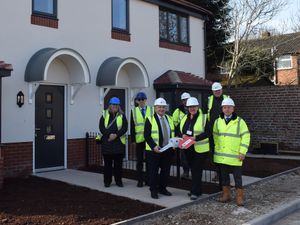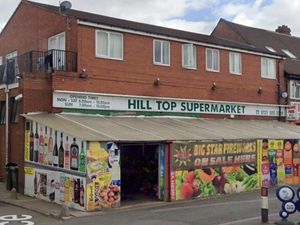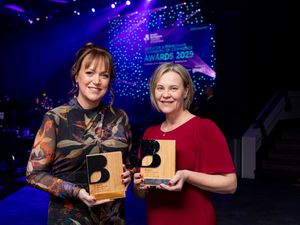Pie in the sky or the road to success?
How do you envisage the future of motoring? Driving to work along the McDonalds M54 or Aston Villa Expressway? Financing road maintenance through a lottery with electric cars as the star prizes? A mobile-phone style contract arrangement with the government based on how many miles you drive each year?
This is not one of the more off-the-wall entries in the manifesto of one of the fringier political parties, but a set of new proposals being put forward by Edmund King, president of the AA, who has published his vision for a new way to pay for investment in Britain's road network in decades to come.
Mr King, who was last year appointed an OBE after 25 years campaigning on roads issues, says there is an urgent need for massive investment in Britain's creaking road network. He is critical of the way successive governments have prioritised rail travel over the country's roads.
"A space traveller landing on planet UK would be surprised that, as a country dependent on roads for 85 per cent of passenger travel and almost 90 per cent of freight, proportionately more of our foresight and investment is going into high-speed rail," he says.
"Roads are the main means of getting from our homes to our destinations, and for getting goods to our shops.
"Roads have transformed our country and our lifestyles. Roads and cars have revolutionised how we live, work and play. Yet roads are often the much-maligned poor relation that gets a bad press. They are congested, dangerous, pot-holed and polluting, we are told."
Certainly, there are many who will agree that a radical overhaul is needed of Britain's road network.
In March this year, transport minister Andrew Jones warned that there was no guarantee that funding would be found for Shrewsbury's proposed £110 million North West Relief Road, which was shelved six years ago due to lack of cash. The privately run M6 Toll, which links the M6 at Coleshill to the M42 at Cheslyn Hay, was seen as one possible way of financing new road construction, but has not been the success that many had been hoping. When it was launched in 2003, it was expected it would carry 75,000 vehicles per day, but in reality it has often struggled to manage half that number.
The backlog of repairs needed to roads in the West Midlands has also been a bone of contention. A recent report by the Asphalt Industry Alliance said that some £1.25 billion would be needed to get roads in the West Midlands back into reasonable condition, with one in six needing to be repaired or even face closure within the next five years.
However, while few would argue that there is a need to find new ways of funding road investment, some of Mr King's proposals may prove controversial.
He suggests big business or even sports clubs could sponsor major routes. But while naming the M54 after McDonalds might not prove too controversial, it is hard to see Birmingham City fans relishing the prospect of that Aston Villa Expressway.
More controversially, Mr King proposes that fuel duty should be replaced with a mobile-phone style contract, where drivers are given a free allocation of 3,000 miles per year, and are then charged a mileage rate for distances travelled after that has been reached.
He points out that in 2015, fuel duty and VAT on fuel raised £32.6 billion for the Government, accounting for 84 per cent of vehicle tax revenue. But Mr King argues that this will inevitably decline as people switch to greener vehicles, falling to less than £25 billion by 2025.
"Government revenue from excise and fuel duty will decrease as fewer vehicles use petrol or diesel," he says.
But while his "road miles" scheme would no doubt be popular with students and retired people, business travellers and commuters may be less impressed.
Mr King proposes that mileages should be recorded twice a year at registered garage to ensure that motorists comply.
"Alternatively, this could be done online or via an app, similar to gas and electricity supply customers," he says.
"This way, the utility company needs only to make one household visit per annum for verification."
Mr King says that if motorists were charged by the mile in a way that they could easily understand, it would encourage them to drive fewer miles and use other forms of transport.
Looking further ahead, he sees sensors below the road surface and advanced vehicle recognition cameras meaning that payments could automatically be deducted from registered credit cards as they travel along the roads, although how that would play out with civil liberties campaigners remains to be seen.
Mr King proposes that the number of free miles allocated to each motorist could depend on location, with more generous allocations for people living in rural areas such as Shropshire.
He also suggests that the Government could auction off road miles allocations so that, for example, Ford could offer 1,000 extra free road miles with every new Focus, or that mobile phone companies could give them away with their prestige accounts.
One of Mr King's more "outside the box" ideas is a road miles lottery, which would be run alongside similar lines to the National Lottery.
"Lottery prizes will be super state-of-the-art cars with free road miles for one or two years," he suggests.
"The very latest top-end electric or hybrid models, such as Tesla S Model and proposed Aston Marin EV would be offered to increase excitement about electric vehicles."
One interesting point raised by Mr King is the impact internet shopping is having on our road network.
"On current trends it is not car traffic that is growing fastest, but freight traffic is growing by record amounts," he says.
"With the demise of heavy industry, most freight traffic is governed more by consumer demand than industrial demand. Retail trends such as increased home shopping, faster deliveries and multiple free-return policies are increasing the number of white-van trips. These trends are not sustainable."
He says deliveries are particularly problematic, often taking several attempts to deliver a single package if the recipient is not at home.
"During the London Olympics, many companies banned their staff from receiving deliveries at work, which reduced congestion." Mr King suggests that hauliers could be charged a lower mileage rate if they used the rate at night. He says that central customer delivery and collection centres could also be part of the answer, although cynics might suggest that such venues have been around for many years – usually known as shops.
Mr King says that his road miles scheme would achieve the politician's dream of both raising more money for the Treasury and also proving popular with the public, although he admits it is still a long way away.
"Financial model projections of total road-mile revenues are above current government motoring revenue, by an average 4.4 per cent, or £1.4 billion a year," he says.
"The scheme will be popular. In a recent Populus poll of 9,000 drivers, 63 per cent of drivers chose road miles as the most popular option of paying for road use."
There is no doubt that Mr King is passionate about his plans, but admits that there are still many obstacles to the system being put into practice – not least the difficulty of interfering in the way an essential service is delivered.
"Despite drivers becoming slightly more supportive of road pricing over time, the massive obstacle is still total lack of trust for politicians to introduce a fair system," he says.
"Road pricing is still 10 years away. It may be a great idea in economic terms, but not in political or trust terms."
In other words, while Mr King's report raises many interesting ideas about how our roads could be funded in years to come, don't expect to find many of his ideas in the General Election manifestos.





